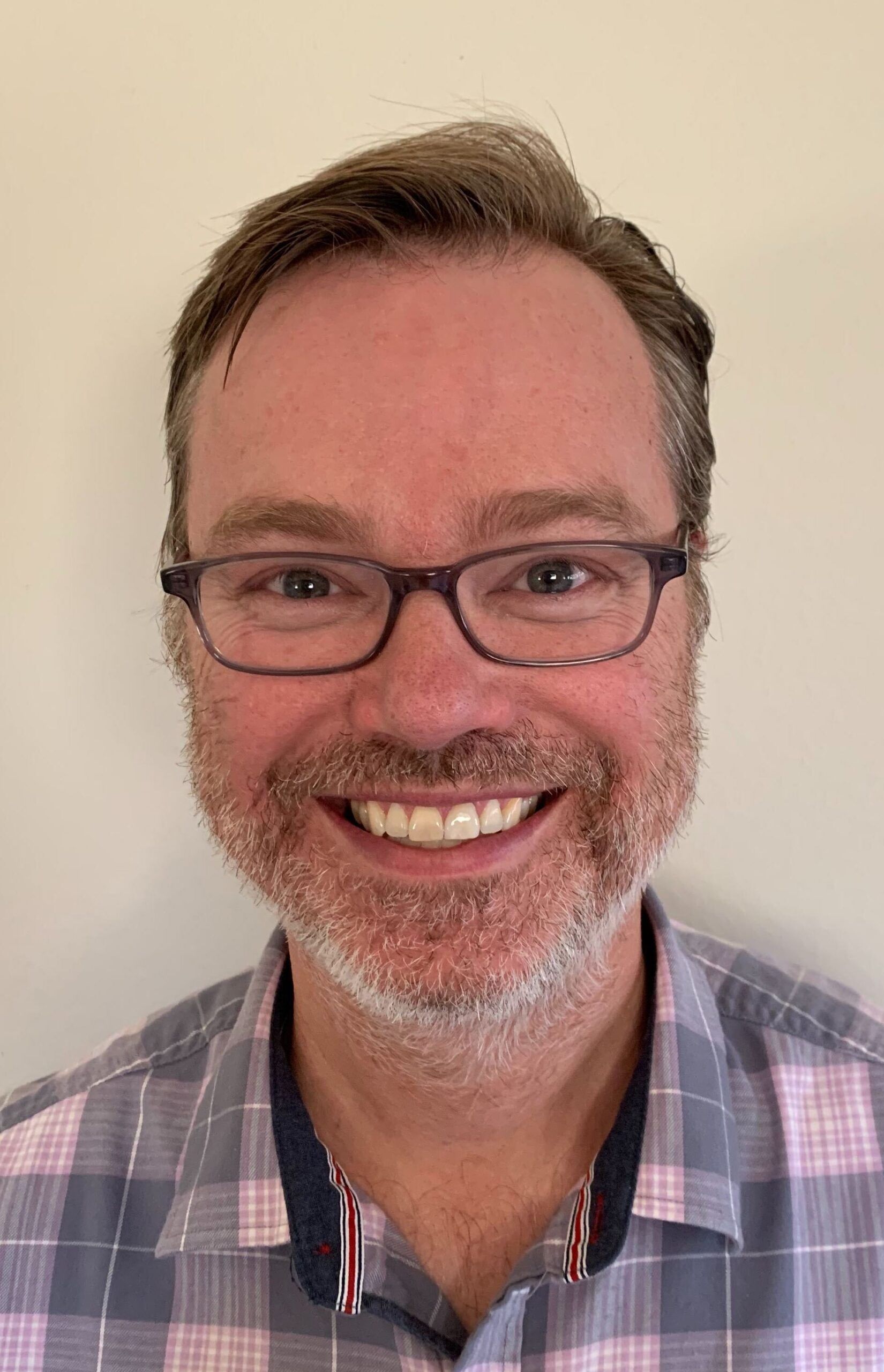Rookie mistakes sack investment team run by Forty-Niner legends
Barton, Lott and Montana traded on football fame to build elite firm; funding overcommitment, financial crises led to sale of blitzed HRJ
Harris Barton, a former right tackle with the San Francisco 49ers, remembers the time Reggie White of the Philadelphia Eagles flattened him. It was Sept. 24, 1989, and for two downs, Barton had fended off White’s “rip and club” move of throwing opponents off balance and knocking them to the turf.
On third down, White hurled Barton on his butt and hit quarterback Joe Montana so hard he fumbled the ball. Montana went on to throw four touchdown passes in the fourth quarter to beat the Eagles, 38-28, on the way to the team’s fourth Super Bowl victory, Bloomberg Markets magazine reports in its March issue.
There may be no such comeback for Barton in the investing game. HRJ Capital LLC, an investment firm he co-founded with another former 49er, Hall of Fame defensive back Ronnie Lott, collapsed in 2009 amid complaints by investors who say they were misled about the extent of its woes. The rise and fall of HRJ is a story of how former football champions traded on their star power only to be undone by a rookie mistake in the way they financed their investments.
“It worked for nine years, but mistakes were made,” Barton, 46, says as he sips a coffee at an Italian restaurant in Palo Alto, California. After HRJ’s demise, he says he was embarrassed every time he walked into a place like this in Silicon Valley. “I felt like everyone was looking at me and saying, ‘There he is, the dumb athlete who couldn’t manage his firm.’”
Gridiron Glory
Barton, an All-Pro who won Super Bowls in the 1988, 1989 and 1994 seasons with one of the most dominant dynasties to ever reign in football, set up the fund-of-funds firm in 1999. Woodside, California-based HRJ, which Montana joined as a partner from 2003 to 2005, invested in venture capital, hedge funds and private-equity funds.
Wrapped in the glory of their triumphs on the gridiron, the ex-49ers easily won entree to the most-prestigious names in finance — from venture-capital firm Kleiner Perkins Caufield & Byers and hedge fund Tudor Investment Corp. to buyout company Blackstone Group LP. George Roberts, co-founder of KKR & Co., became a mentor and golf partner of Barton’s. Ken Griffin, chief executive officer of Citadel LLC, invited Lott to make a speech to his Chicago hedge fund’s greenhorn traders on what it takes to excel as a rookie.
“We used football to get in the door and talk to titans,” Barton says.
At its peak in May 2008, HRJ managed $2.4 billion from offices on three continents for sports stars such as Indianapolis Colts quarterback Peyton Manning and San Francisco Giants home run king Barry Bonds, according to a roster of the firm’s clients.
Good Times End
The Houston Firefighters’ Relief and Retirement Fund, Cornell University’s Office of University Investments and other institutions also took advantage of HRJ’s access to elite money managers.
The firm threw parties to celebrate its success: In 2007, it flew many of its three dozen employees to London to schmooze with European clients at a luxury skybox at Wembley Stadium while the Miami Dolphins played the New York Giants on the field below.
The good times came to an end two years later because of the way HRJ financed its investments. Most funds of funds raise money from investors and then commit the capital to private- equity managers. HRJ took a different approach: It made commitments to money managers prior to raising cash from new clients.
Investors Outraged
When those managers called for capital, HRJ paid primarily with debt issued by Silicon Valley Bank, a unit of SVB Financial Group, a Santa Clara, California-based company with $15.7 billion in assets as of Sept. 30. For five years, HRJ paid down its debt with money from new investors in its funds.
When credit dried up even for the highest-quality borrowers in 2008, HRJ was sitting on more than $338 million in unfunded pledges and was unable to raise cash to cover its bets. HRJ spiraled toward insolvency until its assets were acquired in 2009 by Capital Dynamics AG, a private-equity fund-of-funds firm based in Zug, Switzerland.
“The strategy was unorthodox and unwise,” says Austin Long, co-founder of Alignment Capital Group LLC, an Austin, Texas- based private-equity consulting firm. “If more funds had used this method, it would have brought the fund-of-funds industry to its knees.”
Investors were outraged upon discovering that HRJ had quietly transferred its overcommitment from an affiliate controlled by Barton and Lott to the funds of funds themselves, says Deirdre Nectow, head of business development at Cambridge Associates LLC, a Boston-based consulting firm that represented clients with more than $500 million invested in HRJ.
Financial Maneuvers
The move made HRJ’s limited partners responsible for the debt to SVB and the capital calls issued by buyout firms. Nectow says in an interview that the shift violated the limited- partnership agreements HRJ signed with its clients, which established that the funds would remain debt-free.
Cambridge only learned about the transfer after pressing Jeffrey Bloom, the firm’s general counsel and chief compliance officer, for more details on the state of HRJ funds during the crisis. Cambridge then demanded an accounting of the move.
“We were dismayed by the actions they took,” Nectow says. “They were not very forthcoming.” Bloom and Barton declined to comment on the transfers. Lott declined to comment for this article.
HRJ’s financial maneuvers also triggered litigation from three senior executives: Lane Auten, a former investment banker with Banco Santander SA, who headed HRJ’s marketing and fundraising efforts from 2003 to 2008, and Duran Curis and Darren Wong, both of whom managed HRJ’s funds of funds and brought in new clients.
Payments Cut Off
In a lawsuit filed in Santa Clara County Superior Court, the trio accused Barton, Lott, Capital Dynamics and SVB of stiffing them on more than $17 million in compensation.
The former executives say HRJ owes them portions of the management fees paid by clients in the firm’s funds. When HRJ started running out of cash in 2008, the plaintiffs say the founders and SVB agreed to cut off those payments to them and instead use the fees to secure debt HRJ and its affiliates owed the bank, including $8 million in personal loans it made to Barton and Lott.
“These guys promised us, ‘You will be paid this money for all the work you do for 10 years,’ but they overextended themselves and they broke that promise,” says Auten, 43, a managing partner at Impact Capital Partners, a San Francisco- based investment consulting firm.
Under Strain
All of the defendants, who have denied the allegations in court filings, declined to comment.
Barton says he, too, was hurt by HRJ’s failure. He lost his equity in the firm from its sale, and his personal finances came under strain. Barton, who received a bachelor’s degree in finance from the University of North Carolina at Chapel Hill in 1987, made a lineman’s wage in the National Football League, averaging about $620,000 a year.
In 2004, he bought and renovated a 113-year-old mansion with five bedrooms in Palo Alto that’s worth about $6 million today. Barton says he was deeply worried about losing his house as HRJ unraveled.
Barton, a Georgia native with curly auburn hair and a boyish grin, has a Southerner’s gift for storytelling. With his easygoing nature and 12 handicap on the golf course, Barton made a lot of friends among venture capitalists.
‘Magical Aura’
In December, he and Lott hosted a gala in San Francisco’s City Hall to benefit Champion Charities, which they founded to raise money for brain cancer research. Both of Barton’s parents died from the disease. At 6 feet 4 inches (1.93 meters) tall, Barton stood head and shoulders above the 400 partygoers, autographing footballs and greeting friends such as M&A adviser Frank Quattrone.
“Harris was passionate about creating a compelling investment firm,” says Andy Rachleff, a founding general partner at Benchmark Capital, a venture firm in Menlo Park, California. “And Ronnie had this magical aura around him; you wanted to be in his company. They understood what their currency was, and they weren’t embarrassed about using it.”
From the moment the two athletes started their firm as Champion Ventures during the dot-com boom, they were confident they could exploit their celebrity, Barton says. After Montana joined the firm, the principals changed its name to HRJ, using the first letters of their names.
Master of Access
The trio played with a legendary club that won five Super Bowls from 1981 to 1994. Montana, a three-time Super Bowl Most Valuable Player, was known as Joe Cool for his eye-of-the-storm calm and precise passing.
The hard-hitting Lott earned renown as one of the toughest defenders to ever play the game. After his pinky finger was smashed in an on-field collision during a 1985 game, he had part of it amputated rather than miss games the next season in rehab.
Venture capitalists held the 49ers in as much awe as rank- and-file fans, Auten says. When Barton and Lott debuted their $40 million VC fund of funds in 1999, it was invited to invest in Sequoia Capital, Benchmark and Kleiner, as these funds were routinely turning away other investors. Barton and Lott were equally successful in parlaying their friendships with hedge- fund and private-equity managers into investments in their funds.
“Harris would always come by and ask, ‘Who do you want to see?’” a former HRJ managing director says. “He was a master of access.”
14-Fold Jump
In 2002, the buyout boom picked up where the dot-com bust left off. HRJ joined a wave of funds of funds that offered smaller foundation and pension managers a chance to spread their bets across a number of exclusive private-equity funds. In 2007 alone, 173 private-equity funds of funds raised $57 billion in capital globally, an almost 14-fold jump from the $4.3 billion deployed by 27 of them in 1997, according to Preqin Ltd., a London-based research firm.
“Without funds of funds, we couldn’t get the access we needed to do this kind of investing,” says Lisa Eslinger, chief investment officer at the $400 million Iowa State University Foundation, which placed $8 million in an HRJ fund that bought distressed assets. “The fund-of-funds structure opened this door for institutions like ours.”
In keeping with the industry norm, HRJ charged 1 percent on managed assets and 5 percent of profits on top of fees collected by the underlying funds themselves.
‘No Rush Like That’
Barton says he savored being a player in the global investment game. He hit the links at the ultra-exclusive Nanea Golf Club on the big island of Hawaii with KKR’s Roberts and talked shop over Italian dinners with Marc Lasry, CEO of Avenue Capital Group, a New York-based hedge fund. It was a heady new chapter for a man who was trained to hurl his body at other big men for 60 minutes on a Sunday. Barton says he loved visiting tech startups with Lott in Silicon Valley.
“It was like football in August: You’re in the locker room and Bill Walsh says we’re going to win the Super Bowl,” Barton says, referring to the 49ers Hall of Fame head coach, who died in 2007. “There’s no rush like that, except when you walk into a company with six guys and one’s from Poland, and another is from Israel, and they’re going to make a hit company, have an IPO.”
Barton could have easily wound up with the New England Patriots or New York Jets, both of which almost picked him in the 1987 draft. Instead, the 49ers selected him in the first round as they were reaching full bloom under the cerebral Walsh.
Uppercut Move
“I was playing on a team with Montana and Lott at the same time Yahoo and Cisco were being built down the road,” Barton says. “That’s pure luck.”
The 280-pound (127-kilogram) tackle rapidly learned that at the pro level, he would need more than size and strength to prevail in the head-to-head wrangling on the line of scrimmage; he would need knowledge. Barton spent long hours dissecting the tendencies of his opponents.
“He was obsessed with watching film,” says Brent Jones, a tight end who played alongside Barton. “Harris was always a key player on our offensive line.”
Barton noticed on film that the late Reggie White liked charging inside the tackle and used an uppercut move — the rip — to knock the linemen backward before clubbing them down. So Barton placed more weight on his left foot to withstand White’s attack. Barton says anticipating your opponent’s first move was crucial.
“It’s actually like a chess match,” he says.
Broken Fibula
Even as Barton collected Super Bowl rings, he was drawn to the other front-page story unfolding in the Bay Area: the computer revolution. Barton says he pinched 49ers letterhead and wrote to Cisco Systems Inc. CEO John Chambers and Yahoo! Inc. co-founder Jerry Yang to express his admiration for their companies and his desire to learn more about them.
The gambit got him meetings with the executives, and he later became friends with John Mumford, founder of Crosspoint Venture Partners, and other venture capitalists. Barton says he also cold-called KKR’s Roberts, 67, in 1994 to introduce himself and became a protege of the San Francisco-based dealmaker. Both Roberts and Mumford declined to comment.
In a preseason game in August 1998, Barton’s NFL career came to an abrupt end when a Miami Dolphins defender fell on his ankle and broke his fibula. Barton, then 34, says he went into a state of withdrawal as he faced life without football.
A few weeks later, he had lunch with Lott, who’d reluctantly left the game in 1995 after his own body gave out, at the Peninsula Creamery diner in Palo Alto. Barton told his former teammate he didn’t know what to do with his life. Lott suggested they could help athletes invest with venture capitalists.
Football Pizza Parties
“Let’s call these guys; they’re all friends of yours,” Lott told Barton. “Let’s go meet Mumford.”
Mumford told the two athletes that to secure allocations in top VC funds they needed more than capital; they would have to be active investors who contributed something of value to startups. So Barton and Lott told John Doerr, senior partner at Kleiner, and other VCs that they would be happy to visit their portfolio companies and tell motivational football stories, throw Monday Night Football pizza parties for employees and help recruit talent.
After the duo received spots in VC funds, they contacted their friends in pro sports and offered them a chance to cash in on the then raging dot-com market. Their fund-of-funds firm was born.
Silver Spoons
Barton and Lott set up shop in a ranch-style office in Woodside, a wealthy hamlet near Stanford University. Barton, an effusive personality, couldn’t sit still and wandered the office slapping backs and asking how the funds were performing. Lott, a former All-Pro defender, was an intense, taciturn presence who spoke in sports analogies.
One HRJ recruit says Lott told him that he and Barton wanted to put an all-star team together and were looking for top players. Lott liked to say that every team member at HRJ ate from the same soup bowl. To drive the point home one year, he gave silver spoons from Tiffany & Co. to every employee.
Barton and Lott raised $309 million for three VC funds of funds by 2003. When venture-capital fundraising plunged after the tech bust in 2000, Barton says Roberts advised him to shift into leveraged-buyout funds.
They were gearing up as the U.S. recession of 2001 left scores of companies weakened and spurred interest rates to fall. HRJ committed $278 million to 35 buyout funds via HRJ Growth Capital I and II from 2002 to 2006, according to fund documents. And Lott led a push into hedge funds with the HRJ Legends Multi- Strategy funds, a $330 million investment pool.
Autograph Seekers
Montana, who invested in property, joined HRJ in 2003 and led the development of a real-estate fund of funds. The former quarterback was thronged by autograph seekers whenever he visited public pension investment boards to pitch the funds, former HRJ managing directors say. HRJ invested $308 million in real estate assets managed by Fortress Investment Group LLC, Lone Star Funds and other firms.
Yet Montana, a private man who lived on a sprawling Tuscan- style villa in Napa Valley, loathed the two-hour drive to the Woodside office and didn’t have the same zest for investing as his former teammates, the ex-HRJ employees say. In 2005, he quit as a partner. Montana, 54, who promoted Skechers sneakers last year, declined to comment.
In 2006, HRJ’s first global buyout fund returned 23 percent compared with 13.6 percent by the Standard & Poor’s 500 Index. By 2007, HRJ had $1.7 billion in invested capital and 40 employees in offices in Silicon Valley, New York, Chicago, Zurich and Shanghai. That year, Barton and Lott launched their largest fund yet: the $550 million HRJ Global Buy-Out III.
Eleven Rings
The fortunes of HRJ were about to shatter thanks to the pre-commitment model it had adopted in 2003. Barton says HRJ used debt so it could lock down more investments with elite money managers. The move also helped the firm raise funds by showing potential investors where it was placing its bets.
“We knew what funds they were investing in and that was valuable,” Iowa State’s Eslinger says.
Bloom, the lawyer who was then also the firm’s chief financial officer, helped the founders set up an affiliate in 2003 to hold the debt owed to SVB. Called Eleven Rings, the limited-liability company took its name from the number of Super Bowl rings won by Barton, Lott and Montana.
Whenever HRJ made commitments to invest in buyout and VC funds, Eleven Rings drew on its SVB credit line to pay capital calls issued by those funds. In this way, Barton, Lott and Eleven Rings bore the lending risk and not HRJ’s clients.
‘Disastrous Overcommitment’
When the subprime mortgage collapse started rattling markets in late 2007, Barton says Mumford warned him and Lott to pull back on making commitments to buyout firms. It was too late.
By April 2008, Global Buy-Out III had closed $420 million in pledges to 25 buyout firms, according to HRJ records. When those firms started issuing capital calls to Eleven Rings to make payments under threat of default, it burned through its SVB credit line. HRJ’s fate hung on whether it could bring in new investors during the worst global financial crisis in decades.
After Eleven Rings transferred its debt obligations to HRJ’s funds, Suomi Mutual Life Assurance Co., an investor in the Global Buy-Out III Asia Fund, expressed its pique at the move.
“HRJ Capital, Eleven Rings, and SVB, in an attempt to address the disastrous overcommitment problem that they created, have taken actions to improperly shift the problem and the SVB loan onto the limited partners of the HRJ Asia Fund,” Jussi Snellman, the Helsinki-based insurer’s lawyer, wrote to an HRJ attorney on Feb. 9, 2009. An SVB spokeswoman declined to comment.
‘This is a Funeral’
On the night of Dec. 15, 2008, Barton, Lott and Bloom gathered in a conference room at SVB’s Palo Alto office. Barton says the mood was somber as Greg Becker, SVB’s president, presented them with a document the bank was about to submit to the U.S. Securities and Exchange Commission.
It stated that HRJ was unable to repay almost $69 million in loans and that SVB was assuming control of its funds and management fees. There was virtually no chance investors would give HRJ money to manage once the news hit.
“This is a funeral; you’re going to kill these guys,” HRJ lawyer Frank Currie told Becker, according to Barton. The 8K went public at midnight, and HRJ was done.
Four months later, SVB found a buyer for HRJ, preventing its limited partners from being wiped out in a possible bankruptcy. In April 2009, Thomas Kubr, CEO of Capital Dynamics, agreed to pay $29 million to retire HRJ’s $57 million debt to SVB. Capital Dynamics also assumed the $8 million in personal loans to Barton and Lott.
Back in the Game
The deal ended HRJ’s overcommitment crisis, and none of HRJ’s limited partners chose to sue the firm. And HRJ’s VC IV fund, which invested with the Accel Partners fund backing Facebook Inc., was worth 1.2 times its invested capital as of Sept. 30, 2010.
Barton accepts responsibility for the fall of HRJ, a beating he says that ached far more than the blows he suffered on the football field.
“At the end of the day, my name was on the door, so I’ll take the hit,” he says. After spending a year with Capital Dynamics, he opened H. Barton Asset Management, which will invest alongside VCs in tech startups.
“I want to be back in the game,” Barton says. “I think I can make a go of it again.”
–Bloomberg News–
Learn more about reprints and licensing for this article.






